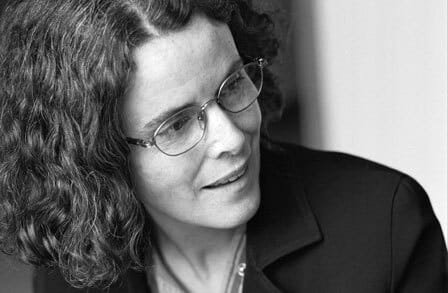
PURA LÓPEZ-COLOMÉ was Born on November 6, 1952, in Mexico City, and spent her early years between the bustling capital and the quieter setting of Mérida, Yucatán, where her family has roots. Following the death of her mother at the age of twelve, she was sent to a Catholic boarding school in South Dakota, United States, run by Benedictine nuns. It was in this setting that López-Colomé first encountered poetry in a meaningful way, developing an affinity for Irish poets and other literary traditions, influenced by a nun who taught her English class. During this time, she wrote her first poems and explored translation by working with the texts of Emily Dickinson, W. B. Yeats, and Patrick Kavanagh.
López-Colomé later returned to Mexico, where she pursued a bachelor’s degree in Hispanic and Hispanic-American literature at the National Autonomous University of Mexico (UNAM). Her professional journey included a stint as a language instructor at Berlitz and editorial work at the Saturday supplement of the newspaper Unomásuno under the guidance of Huberto Batis. Influential mentors like Batis, Antonio Alatorre, Salvador Elizondo, and Ernesto Mejía Sánchez encouraged her to remain steadfast in her literary pursuits. Although she initially pursued postgraduate studies, López-Colomé ultimately left academia to focus entirely on writing poetry, essays, and translating works of poetry. Today, she is a member of the National System of Art Creators.
López-Colomé has received multiple awards throughout her career, including the Alfonso Reyes National Essay Award in 1977 for Diálogo socrático en Alfonso Reyes and the 1992 National Poetry Translation Prize for her translation of Seamus Heaney’s Isla de las estaciones. In 2007, she shared the Xavier Villaurrutia Prize with Elsa Cross for the book Santo y Seña.
Her published works include: El sueño del cazador (Cuarto Menguante, 1985); Un cristal en otro (Ediciones Toledo, 1990); Aurora (Ediciones del Equilibrista, 1994); Intemperie (Ediciones Sin Nombre, 1997); Santo y Seña (Fondo de Cultura Económica, 2007); Reliquia (Consejo Nacional para la Cultura y las Artes / Ediciones Sin Nombre, 2008); Por si acaso no (Parentalia Ediciones, 2010), and Poemas reunidos: 1985-2012 (Consejo Nacional para la Cultura y las Artes, 2013).
(Photo Credit: Nina Subin)
Editor’s Introduction
on the elemental vision of Pura López-Colomé
Pura López-Colomé’s poems do not describe the world. They listen to it. They receive it in fragments and let those fragments breathe, flicker, and smolder. What appears in her lines is not a landscape but a condition of being, at once natural and interior, luminous and unfinished.
Her language does not move toward resolution. It coils and recedes, the way thought does in moments of silence. These poems inhabit the in-between: between weather and word, memory and matter, dawn and what dawn forgets. In Weathering, the atmosphere becomes prophecy, a field where meaning might appear but is never guaranteed. The Birds moves from human ruin toward something lighter, the grace of migration, a release from the earthbound. Prayer is distilled to a single ethical wish. And Trees opens itself to perception, resin, and the strange clarity of living things that have endured more seasons than we can name.
To read López-Colomé is to enter a metaphysical attentiveness, a poetics of subtle witness. Her images do not carry answers. They carry time. Time in its circular form, its flowering and withering, its unfinished sentences. The divine appears, but only as breath or absence. The self flickers between shadow and illumination. There is no need to explain the mystery. It has already spoken. The poems simply let it remain.

